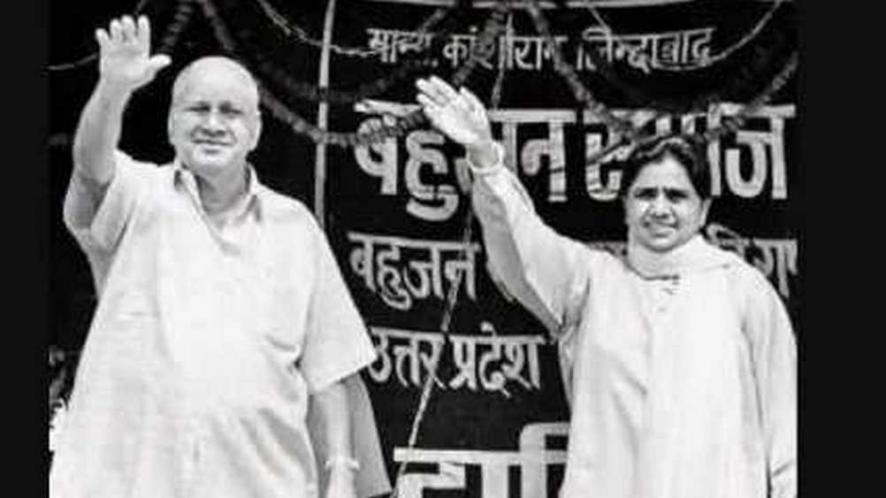Bahujan Samaj Party ( BSP ) was founded by Kanshi Ram in 1984. In 1984, it was formed to chiefly represent the Dalits, and claims to be inspired by the philosophy of Dr Ambedkar. With the demise of Kanshi Ram in 2006, Mayawati is now the undisputed leader of the party. Mayawati swept to power in 2007 Assembly elections in Uttar Pradesh for the fourth time. She served as the Uttar Pradesh Chief Minister thrice earlier.
The party has its main base in Uttar Pradesh. Since its inception, the growth of the party coincided with the growth of Kanshi Ram as the tallest leader of Dalits in India. He gained all-India significance along with Mayawati and started fighting for the rights of the Dalits.
Both Kanshi Ram and Mayawati traveled across the states of Uttar Pradesh, Rajasthan, Punjab, Maharashtra, Bihar, and elsewhere. Through their speeches, Kanshi Ram and Mayawati appraised the Dalits of their socioeconomic, political, cultural, and educational rights and the ways and means through which, they could achieve their goals.
They even posted some BSP workers in some areas in Delhi the State Capital, to spread the message of the Party and to help the Dalits fighting for their rights. Through Kanshi Rams efforts, Bahujan Samaj Party emerged as the savior and protector of Dalit rights.
Kanshi Ram organized numerous meetings of Mahars in Maharashtra and fully appraised them of their socioeconomic status. He always emphasized the role of education for betterment. He argued for imparting technical and medical education to the young boys and girls of Dalits.
He was keen that a substantial majority of them should become engineers and doctors showed a sense of optimism by his assertion that with the kind of opportunities available, anybody can become successful in life. Kanshi Ram had an ideology which is laced with politics, religion, culture, and education meant for the people of his community and for this he argues that once their base is strengthened, their progress would be spontaneous and a continuous phenomenon.
He organized the youth wing of the Bahujan Samaj Party and opined that if the cadre was strong, the party would remain strong. Their responsibility included advising the Dalits about injustice done to them by the higher-caste Hindus for generations and under these conditions they were left with no option but to fight back.
He stressed education for women. He was against the dowry evil. He warned all the people including Dalits not to take dowry. He was an advocate of prohibition. He highlighted the plight of the weaker sections, particularly the Dalits who had destroyed themselves under the influence of alcohol.
He spoke against the migration from rural to urban areas. He described in detail the consequences of such a process. People who migrated found it difficult to find jobs. Even if they found one, they would find it extremely difficult to cope with the pressures associated with the job.
Very often, they would be forced to do menial works. He had a plan in view to devise ways and means which would greatly facilitate the execution of welfare policy which the Bahujan Samaj Party would like to implement.

